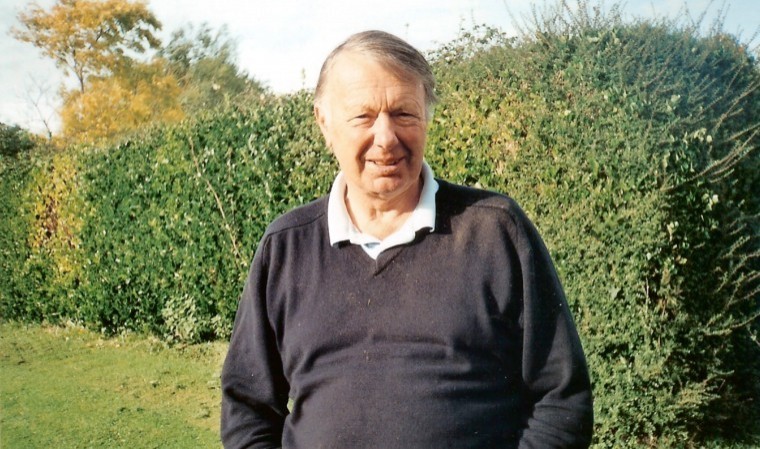Old habits die hard, so I am still slightly inclined to listen to Farming Today at 5.45am, but seldom manage to stick with it. Apart from the very odd snippet, over the past 10 to 15 years I have seldom heard such a misnamed programme. Everything has to be ‘balanced’ by including the extreme ‘wet’ views such as Packham, Mombiot and the ‘badger huggers’. It’s a farming programme for heaven’s sake! Listened to, in the past by farmers, until we have increasingly given it up, for just these reasons.
Recently we were being given another DEFRA update on the latest plans to turn England from a food producing land to a wild flower and forest vista. To cover much of these islands, which should be producing crops to feed our growing population, into parks. One day there will come a crunch. We are farmers, not park keepers. One day the food will not be available from the likes of Africa and Brazil, where they are cutting down the very trees the world needs for its green lung, only to increase the very problem Governments worldwide are trying to solve. Yet still our Government listens to the ‘real experts’ like Packham and Countryfile.
Amongst the redundant stock barns around the farms these days, the one that stumped me was our old, albeit part-robbed, milking parlour and dairy. It stands almost empty now. It is a solid, brick built building, too good to demolish but, for some time, I thought that such could well be its fate. The old milking pit running through much of its centre, with drains now located at the wrong levels, was also a big complication.
Then one day, back in September, when we were up on the hills amongst the spruce in Scotland, with peaty mountain water tumbling down the deep Red Burn beside us, it suddenly came to me. Why don’t we turn it into a water bottling plant? Soon the plan was taking shape in my head. If you wonder what I am talking about, let me explain…
Long-term readers (with very good memories) may remember an article I wrote in 2010 about a visit from that world famous water diviner/dowser, sadly the now late George Applegate, who identified, to within four and a half inches and to a metre’s depth, where we should sink a borehole to find almost limitless drinking water for the herd. Of how it was drilled, and how his prediction was proved so accurate. The water passed muster, too, when I brought flasks of the clear, cold liquid to mix with farmer friends’ whiskies after our summer bowls evenings.
Then in October we needed to redirect the borehole supply away from some barns the vineyard now leases, so the pipe was rerouted down the upper farmyard, direct into this old dairy.
Now to the next stage. I spoke both to my wife (who Richard Wood describes as ‘Management’) and to Emma. They thought the idea was interesting, but we agreed we shouldn’t undertake it ourselves. I have always been pretty wary about investing in something I don’t really understand, perhaps other than slow racehorses. So we decided to float the idea and see, so to speak, what came to the surface.
While the actual bottling process is well developed and efficient (although expensive), it is the testing regime, together with the marketing outlets, which need to be worked on. Problems are possible at both ends of the process, both are crucial. One needs to be certain testing is perfect, while, at the other end of the process, the marketing has to be pretty efficient too.
So this is where we are at the moment. We already have genuine interest, but some way to go. It’s a pity bottled water isn’t generally drunk as a mixer with wine, or there would quite likely be a ready market for some locally, since a top brand of an exclusive hotel and restaurant chain is being developed next door. Emma will share the task of promoting the scheme, as she is increasingly involved in my ‘Ideas’ department.
So, as it develops, it will be another potential ‘string to our bow’. The sad fact remains that a litre of premium bottled Natural water sells for as much as two to three times the price of every litre of the milk our old herd produced all those past years. When one thinks of the effort and work that goes into producing such a wonderful food as whole milk, food which can be used in so many ways and in its basic state can sustain life, then compare it with water, however pure? Values seem crazy, and our local tap water is excellent. Yes, we need water to live, but cannot live off it; unless vegan? We will now have to see how things develop.
One of our main tasks these past couple of months has been clearing up fallen trees and now redundant cattle fences. Unusual amounts of timber have been gathered and the new hedge trimmer has been busy tidying the old meadows into fields where the plough could get closer to the hedgerows. Doubtless a few walkers will be upset to see the flailed branches, yet they need to remember the speed natural vegetation regenerates, so within a few months there will be little to show for the work of those flails. I have even taken the new tool to some of our garden hedges although a number of them have already been well pruned by our little group of roe deer who seem to believe the garden was planted for their benefit. I think they will need some firm lessons, and very soon.




